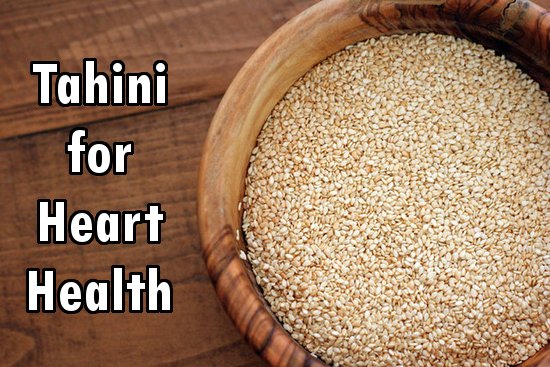Tahini Shown to Promote Heart Health Significantly

 You may not have ever knowingly eaten tahini, but if you’ve had authentic hummus, you’ve eaten it nonetheless. This paste, made of sesame seeds, is a staple in many Middle Eastern cuisines. Raw and unprocessed tahini, without any additional oils or additives, could be a superior food-medicine for preventing heart disease and the risk factors associated with it.
You may not have ever knowingly eaten tahini, but if you’ve had authentic hummus, you’ve eaten it nonetheless. This paste, made of sesame seeds, is a staple in many Middle Eastern cuisines. Raw and unprocessed tahini, without any additional oils or additives, could be a superior food-medicine for preventing heart disease and the risk factors associated with it.
A recent study from the Archives of Iranian Medicine reveals tahini as a possible substitution for risky drugs like statins, drugs prescribed for heart health and known to come with potentially dangerous side effects.
The study looked at the effects of tahini (also referred to as Ardeh) in type 2 diabetics—people who are known to be at a greater risk of cardiac mortality due to higher than normal blood lipids, high blood sugar, and insulin resistance.
A group of 41 patients was divided into two groups. Group A was given two tablespoons (28 grams) of tahini with their breakfast every day for six months. Group B functioned as the control group and didn’t receive tahini at all. Aside from that, the number of calories in their breakfast and throughout the day were kept similar.
The groups were tested at the beginning and at six weeks for various cardiovascular risk factors including: blood pressure, triglycerides, and total cholesterol levels. After only six weeks, significant changes were noted:
“After six weeks, there were significant decreases in serum TG (15.3 mg/dL) and AIP (39 %) in group A. Moreover, slight decreases in serum TC, LDL-C, and other atherogenic lipid parameters and a mild increase in HDL-C also were observed during Ardeh supplementation. Anthropometric measures and blood pressure were unchanged during the study period in both groups.”
A 39% decrease in atherogenic index of plasma is significant, particularly since the only thing that changed in group A was the addition of tahini. The tahini used was “raw” or not combined with any oil or added ingredients—it was pure, ground sesame seeds.
This is far from the first study to implicate sesame seeds in positive health changes. Just last month I reported on a study published in the International Journal of Rheumatic Diseases which showed sesame seeds to be comparable to NSAIDs (like ibuprofen) in the treatment of knee arthritis—able to reduce pain significantly without any side effects. Check out other health benefits of sesame seeds here.
Tahini is easy enough to make. Find a good source of sesame seeds and grind them in a food processor or coffee grinder. You can spread the paste on wraps or use as a vegetable dip. Taken purely for medicinal use, you can eat it by the spoonful without worrying about side effects.
Additional Sources:
